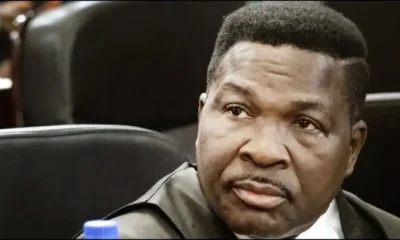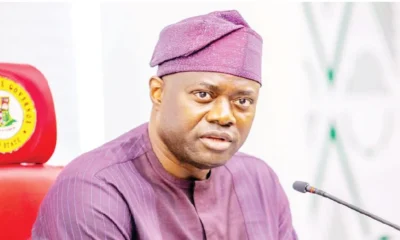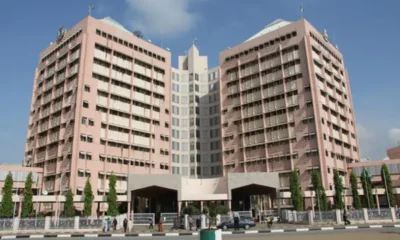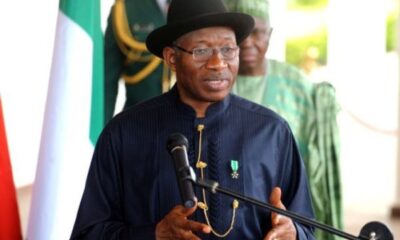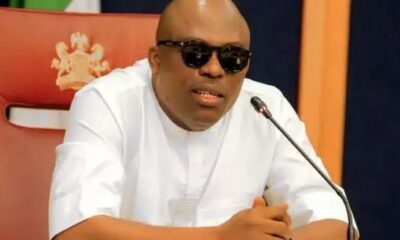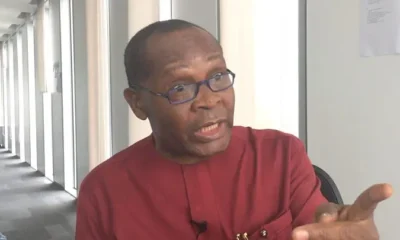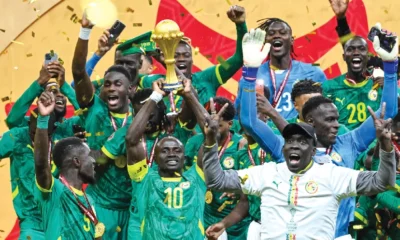Business
Nigeria’s economic momentum at risk on rising insecurity
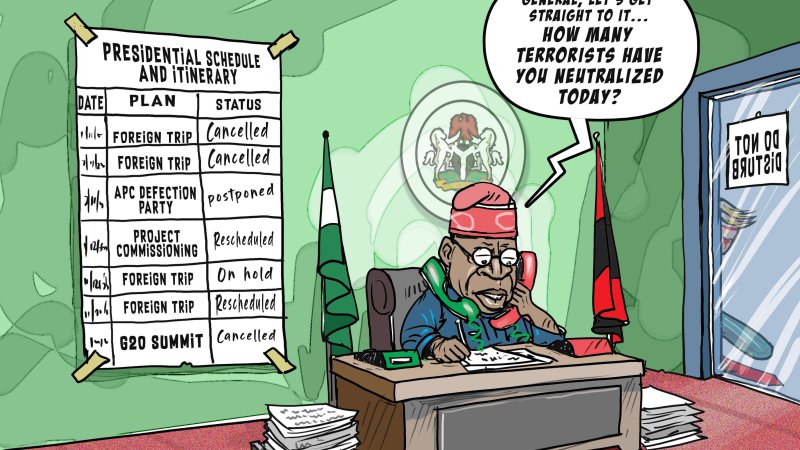
President Bola Tinubu’s ambitious economic reforms are coming under renewed strain as a wave of violent attacks and mass abductions deepens insecurity across Nigeria, threatening to erode investor confidence in Africa’s biggest oil producer.
Tinubu’s government entered office confronting Nigeria’s worst economic crisis in decades. He removed fuel subsidies, restructured the foreign-exchange (FX) market, and began overhauling the tax and public finance systems. International lenders welcomed the reforms, and multinationals began quietly exploring renewed investments.
But rising insecurity is threatening to blunt those early gains.
The latest flashpoint emerged on November 17, when armed men stormed a girls’ secondary school in Kebbi State in northwest Nigeria, abducting 25 students, killing a staff member and injuring another.
No group has claimed responsibility, but the attack bears the hallmarks of the mass kidnappings that have plagued Nigeria’s north for more than a decade. It also revived painful memories of the 2014 Chibok abductions, which shocked the world and triggered global calls for reform.
The attack is one of several violent incidents that have erupted in quick succession, compounding an already fragile security climate. Days earlier, terrorists linked to Islamic State West Africa Province (ISWAP) killed a brigadier-general and several army personnel in the North-East.
In Kwara State, gunmen stormed a branch of the Christ Apostolic Church in Eruku town, killing three worshippers and abducting the pastor and others.
The surge in violence comes as Tinubu pushes ahead with sweeping measures meant to revive economic growth, attract foreign investment and repair the fiscal damage of years of subsidy distortions and oil revenue leakages.
“Nigeria’s long-running security challenges have brought obvious human costs, and they have also contributed to the economy’s woes by hurting output in the agriculture and oil sectors, weakening demand, and putting off investment,” David Omojomolo, Africa economist with London-based Capital Economics, said in a note.
He added, “President Tinubu’s revamping of security leadership and extra money should eventually help, but we suspect that there will be only limited progress before the 2027 election.”
Funso Doherty, co-founding trustee of the Chartered Financial Analyst (CFA) Society Nigeria and former Lagos governorship candidate, said the country can no longer afford half-measures.
“Again, we hear tragic news of cruel and brazen attacks on helpless communities of Nigerians like us in Kebbi and Kwara,” Doherty said. “As we reach out in love to those affected, we say enough is enough. This must stop. The case for State Policing has never been stronger. Now is the time to act.”
Oluseun Onigbinde, co-founder and director of BudgIT, said the severity of the crisis requires the government to rethink both its strategy and its personnel.
“We should seek help, if necessary,” Onigbinde said in an interview. “The President also needs a holistic social protection plan, as current economic efforts exacerbate hardship at the micro-level. Also, we need an audit of our military hardware. We are not where we should be.”
Onigbinde urged Tinubu to adopt a more data-driven, coordinated and decentralised security framework.
Attacks on education
Nigeria’s education sector has been among the hardest hit. As of September 2025, at least 589 schools were closed due to insecurity, according to state and federal education authorities. A 2024 report also found that at least 1,680 students were abducted between 2014 and 2022, a number that has likely climbed in the years as armed groups increasingly target schools for ransom.
The United Nations has repeatedly warned that school closures risk deepening Nigeria’s learning crisis, with millions of children in the North already out of the classroom due to poverty, cultural barriers and the lingering effects of insurgency.
“These attacks are not just security incidents; they are generational tragedies,” said a senior official with an international education non-governmental organisation (NGO) who requested anonymity because of safety concerns. “Every school closed represents hundreds of futures disrupted, and that has long-term economic consequences.”
The attacks have ignited political backlash.
On Wednesday, Peter Obi, former presidential candidate, criticised Nigeria’s political class for focusing on partisan disputes while security deteriorates.
In a post on X formally known as Twitter, Obi referenced a recent remark by U.S. President Donald Trump describing Nigeria as ‘now disgraced.’
“Within a single week, 25 people were kidnapped, and one of our generals along with other officers was killed,” Obi said. “Rather than uniting in this critical moment, we are consumed by internal wrangling, party squabbles and distractions.”
Tinubu postpones trips
Reacting to the development, the president was scheduled to travel to Johannesburg for the G20 Summit before continuing to Luanda for the 7th AU–EU Summit. Instead, he abruptly postponed both trips, citing the attacks in Kebbi and Kwara.
“Disturbed by the security breaches in Kebbi State and Tuesday’s attack by bandits against worshippers at Christ Apostolic Church, Eruku, President Tinubu decided to suspend his departure,” Bayo Onanuga, special adviser on information and strategy to President Bola Tinubu, said on Wednesday.
“He now awaits reports from Vice President Kashim Shettima, who paid a sympathy visit to Kebbi on his behalf, as well as reports from the police and the Department of State Services regarding the attack in Kwara,” Onanuga added.
The swiftness of the response is noteworthy but also underscores the urgency of the situation. Security analysts say the closure of schools, frequent highway kidnappings and attacks on rural communities represent a multidimensional challenge that goes beyond extremist groups like Boko Haram and ISWAP.
In North-West, loosely coordinated gangs of armed bandits have turned kidnapping into a business model, at times collecting ransom amounts of thousands of dollars. These groups, unlike jihadist factions, are motivated by profit rather than ideology, making them unpredictable and difficult to negotiate with.
“These bandits operate across porous rural terrains with little state presence,” said Hassan Abdullahi, a Kaduna-based security analyst. “Their growth has been fuelled by poverty, weak law enforcement and political fragmentation. Tackling them requires not just military force but broad governance reforms.”
“Investors want predictability, and right now Nigeria’s security situation is anything but predictable,” said a senior executive at a West African private equity firm. “Boardrooms are watching closely. A country can run the best economic reforms on paper, but if global executives can’t safely visit project sites, capital won’t flow.”
Analysts say the administration must accelerate its security architecture overhaul, strengthen coordination among federal and state agencies, invest in community policing and rebuild trust with local populations.
“The success of Tinubu’s economic reforms depends on the security environment,” said Clement Nwankwo, director of a leading policy think-tank in Abuja. “Without peace, fiscal reforms, investment inflows and industrial expansion will all hit ceilings.”
Global attention
On November 18, global scrutiny of Nigeria’s security challenges intensified after a heated exchange on Piers Morgan’s talk show between Yusuf Tuggar, Nigeria’s foreign affairs minister, and Goldie Ghamari, a former Canadian lawmaker.
The confrontation unfolded after Morgan cited figures from the International Society for Civil Liberties and Rule of Law claiming that more than 50,000 Christians had been killed and 18,000 churches destroyed in Nigeria since 2009.
Tuggar rejected the statistics as inaccurate and misleading, arguing that the government would not classify victims by religion and viewed all casualties as Nigerians first.
Asked by Morgan if he condemned the attack on Christians by Islamist militants, Tuggar replied in the affirmative.
“I lost my father-in-law to an attack by an Islamic terrorist group, Boko Haram, so I myself am a victim. I’ve lost family members to attacks, and they were Muslims,” Tuggar said.
“But it doesn’t matter whether they’re Muslim or Christian because their aim is to kill, to maim, so that they would achieve their objectives. And the number one enemy of Boko Haram is not a Christian. It is a Muslim who does not subscribe to their own brand of Islam.”
The exchange escalated when Ghamari joined as a second guest, alleging that insecurity in Nigeria amounted to a religious jihad and drawing parallels with the 2023 Hamas attack on Israel. She controversially linked the shared Islamic faith of President Bola Tinubu and Vice President Kashim Shettima to what she described as tacit government complicity.
Tuggar dismissed her comments as ignorant and inflammatory, accusing her of trivialising Nigerian lives from afar.
Similarly, Michael Waltz, United States ambassador to the United Nations and Nicki Minaj, American rapper on Tuesday raised fresh alarm over Nigeria’s persistent security challenges.
At a UN platform on religious freedom, they highlighted what they described as targeted violence against Christian communities.
The event, titled ‘Combatting Religious Violence and the Killing of Christians in Nigeria,’ brought together diplomats, activists, and faith-based organisations to examine rising attacks on religious minorities around the world.
Nigeria dominated the discussion, as speakers pointed to a troubling pattern of mass killings, frequent kidnappings, and the systematic burning of churches across the North and Middle Belt.
Waltz, delivering a keynote addresses, described the violence in Nigeria as “genocide wearing the mask of chaos.”
“In the Middle Belt and in the North, churches burn, mothers bury their children for the crime of singing Amazing Grace, pastors have been beheaded for preaching the Sermon on the Mount.
“Entire villages wake up to gunfire because they dare to commit the crime, the crime of calling Jesus their Lord. People go to jail under blasphemy laws for simply wearing a cross.”
Also, Minaj, who also spoke at the session, echoed the concerns, emphasising that the violence in Nigeria reflects a global struggle for freedom of belief.
“In Nigeria, Christians are being targeted, driven from their homes, and killed. Churches have been burned, families have been torn apart, and entire communities live in fear constantly, simply because of how they pray,” she said. (BusinessDay)
-

 News18 hours ago
News18 hours agoFG Files Criminal Charges Against Ozekhome Over UK Property Saga
-

 Business18 hours ago
Business18 hours agoPetrol war: Importers outpace domestic refineries with 62% supply in 2025
-

 News18 hours ago
News18 hours agoN30bn relief: Oyo cries politics as HEDA drags Makinde to EFCC
-

 Business18 hours ago
Business18 hours agoMDAs Allocate Billions For Stationeries Despite Paperless Operation
-

 Politics17 hours ago
Politics17 hours ago‘Gear Up, Not Give Up’ Amidst Rivers State Turmoil – Jonathan Tells Fubara
-

 Opinion13 hours ago
Opinion13 hours agoPolitics behind failed impeachment attempt of Gov. Fubara
-

 Politics18 hours ago
Politics18 hours ago‘We Don’t Want A Mole’ – Igbokwe Speaks On Atiku’s Son’s Move To APC
-

 Sports19 hours ago
Sports19 hours agoDrama as Senegal beat Morocco to claim AFCON title



